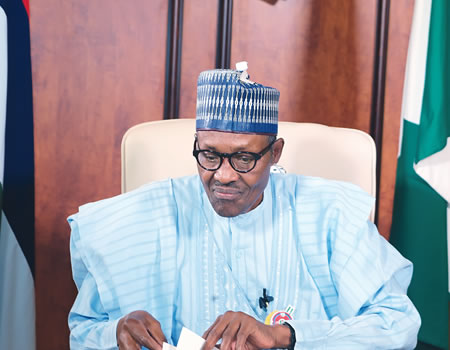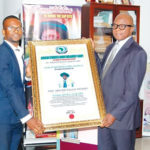
AT a recent interactive session with the media, the National Coordinator of the Open Government Partnership (OGP) and Special Assistant to the President on Justice Reforms, Mrs. Juliet Ibekaku-Nwagwu, disclosed that the Federal Government was making final preparations to disburse the $322 million repatriated from the Switzerland account of former maximum ruler, the late General Sani Abacha. According to her, under the terms of the Memorandum of Understanding (MoU) agreed with Switzerland, the funds would be paid directly into the bank accounts of the poorest Nigerians for two years. She added that identification numbers would be made available on the website being developed by the National Social Investment Office and the World Bank.
Apparently worried by the cynicism which has greeted the plan, Ibekaku-Nwagwu solicited the patience of Nigerians, saying that in spite of the opposition to the MoU from within and outside the government, the Attorney General of the Federation (AGF), Mr. Abubakar Malami, and his team had vigorously pursued President Muhammadu Buhari’s agenda of ensuring that the $322 million was repatriated to the country and deployed in the government’s social safety net project, which targeted poor and vulnerable households. She said: “The poorest members of the community will be registered online and if you make any payment, they must have an ID number so that every payment would be tracked. No amount of money will be paid out without a joint signature between Nigeria and the World Bank and without the identification of individuals.”
ALSO READ: Naira weakens marginally against dollar
It is quite unfortunate that this administration remains recalcitrant in changing its stance, disposition and comportment to the best practices in democratic behaviour. It is disconcerting that it could embark on such a convoluted programme of disbursing a national patrimony outside the framework of appropriation by the National Assembly in which the sovereignty of the people resides. It is apposite to ask how the previous repatriations of looted funds were disbursed. Was there an MoU between Nigeria and Switzerland then? Is it proper for Switzerland to dictate how the stolen money kept in its vaults will be spent by the legitimate owner?
Aside from this fundamental flaw about the proper appropriation of any expenditure of public funds, there are other serious problems with this starry-eyed programme of the Federal Government. For instance, going by a recent report from the World Bank, Nigeria has 60 million unbanked citizens, among which are the poorest Nigerians. How did the Federal Government come to the conclusion that the poorest Nigerians have bank accounts? Are government functionaries so disconnected from reality as to be that presumptuous? It should have occurred to the policy makers that a sizable portion of the country’s population is not captured by the formal sector of the economy. Just how can anyone expect the poorest of the poor to register online? Who really are the people being referred to here?
If the government is really serious about its policy, it should be clear-minded about its target population. It certainly does not appear that the poorest of the poor being talked about by the government are clearly defined. Do they have the devices to register online? Are they literate and digitally-savvy enough to comply with the requirements? We believe that when the supposed beneficiaries are not clearly defined, there is the possibility of the entire plans for disbursement capsizing and leaving room for the funds to return to where they came from under new names. This particular plan, as explained by the government, cannot withstand critical scrutiny and we are persuaded that it is in desperate need of a review.
The National Assembly should be allowed to do its job in appropriating the $322 million loot after a comprehensive debate. Besides, funds such as the one under consideration are best deployed in fostering entrepreneurship and improving infrastructure. But then, the legislature has to debate the issue and exercise its power of the purse first. We advise the Buhari-led administration to shelve its practice of undermining the legislature and inevitably fostering a climate alien to civil rule. The executive, no matter how talented it imagines itself to be, can never take the place of the other arms of government in a democracy.
WATCH TOP VIDEOS FROM NIGERIAN TRIBUNE TV
- Let’s Talk About SELF-AWARENESS
- Is Your Confidence Mistaken for Pride? Let’s talk about it
- Is Etiquette About Perfection…Or Just Not Being Rude?
- Top Psychologist Reveal 3 Signs You’re Struggling With Imposter Syndrome
- Do You Pick Up Work-Related Calls at Midnight or Never? Let’s Talk About Boundaries





